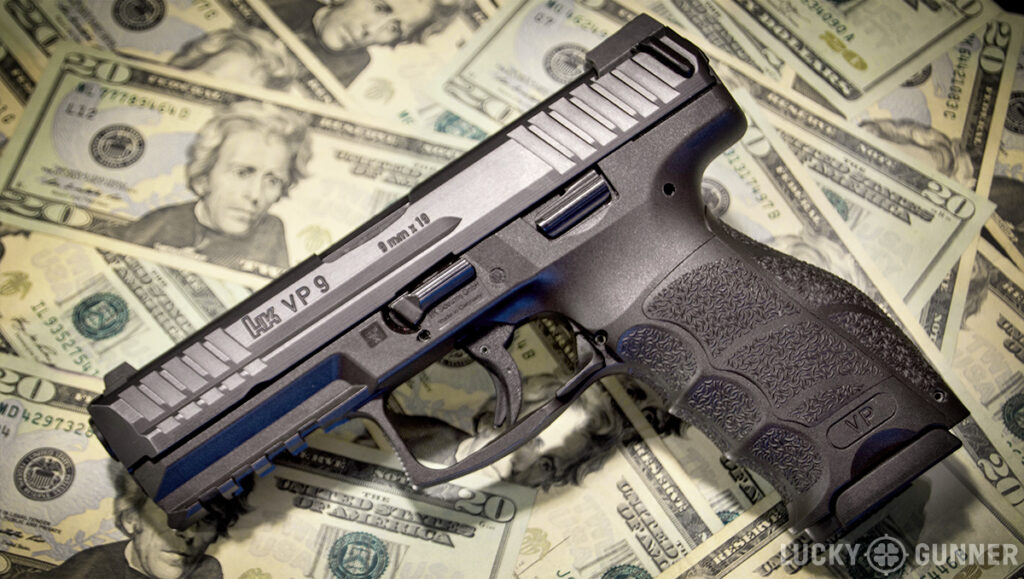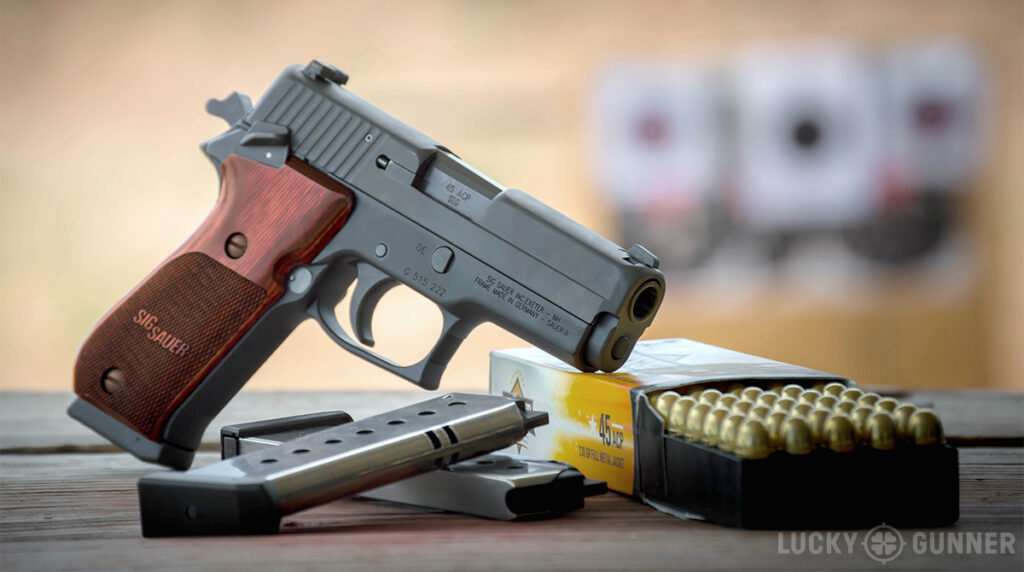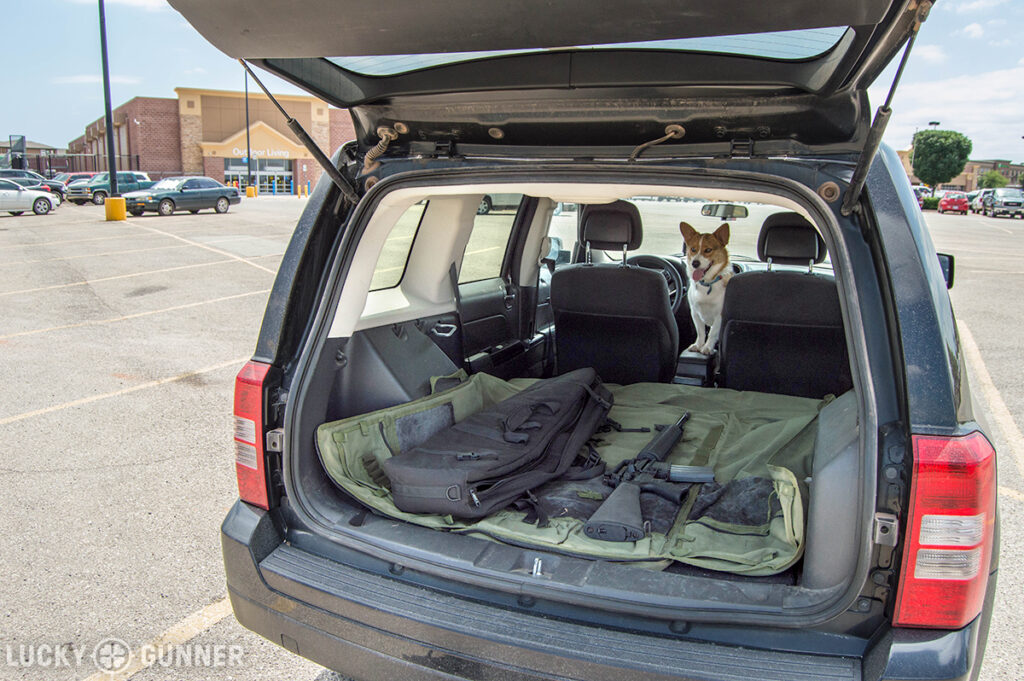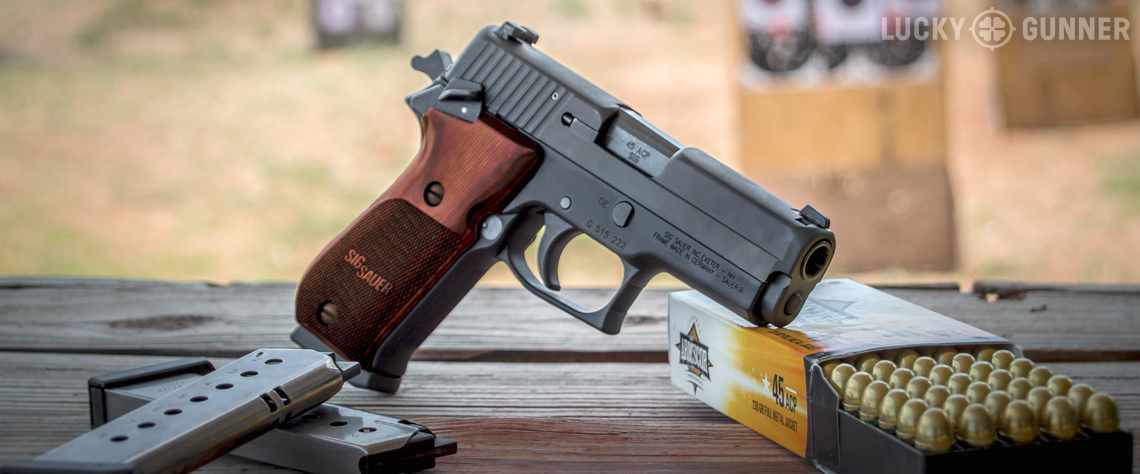Whether you’re a competitive shooter, hunter, or collector, I think there’s always an element of evolution in all of our tastes and needs when it comes to our personal firearm collections. What we begin with on our journey will likely not be the same thing we end up with. As I’ve delved into clay shooting over the last 8 years, I’ve gone through 7 shotguns in pursuit of the best tool for my specific need. It can take time to figure out what works, and we shouldn’t hang onto the things that don’t. Fortunately, there’s no reason to be stuck with something you no longer have any use for and, as the saying goes, one man’s trash is another man’s treasure.
For those of us who are not engaged in the business of dealing in firearms, private, face-to-face firearms sales are an excellent way to buy, sell, or trade firearms, but it’s important to know the best ways to do business in order to protect yourself and to make a deal go smoothly. Here are some tips to improve your experience when conducting face to face or private gun sales.
Where to Buy and Sell?
Finding a buyer or seller for a specific firearm can be a daunting task, but there are a few places that can make the process a little easier.
Gun Shows
Gun shows can be a great way to find buyers and sellers, and they have the benefit of meeting and discussing terms in person. Additionally, there is little ambiguity as to the condition and function of a gun if you can inspect it in person. However, finding or selling a very specific item can be difficult due to the sheer volume of goods that must be sifted through.
Gun Clubs and Ranges
Many gun clubs and ranges have bulletin boards to make members aware of upcoming events. They are also excellent places to let members know what firearms you want to get rid of. These are particularly effective when geared towards a specific crowd. For instance, if you want to get rid of a high-end shotgun, the local trap & skeet range is going to be your best bet to post a flyer. Likewise, if you’re looking for a good trap gun, you probably won’t find one posted for sale at the indoor pistol range.
Firearms Trading Websites
The internet has revolutionized almost every aspect of commerce, so it’s no surprise that the most effective way to find buyers and sellers is by using firearms trading websites such as Armslist. State-specific firearms classifieds sites exist as well, such as Texas Gun Trader. Local gun forums can also be a good way to connect buyers and sellers. Regional sites like BoomerShooter for Oklahoma residents usually have a classifieds section to facilitate private gun transactions between locals.
Tips for Listings
Gun listings vary wildly from brief one-liners that include only a gun model and phone number to short novels with so much extra information it can be hard to separate out what’s really important. Here are some general guidelines for what to include in a listing and what information you should ask for as a buyer.

Item Information
There are two things a buyer is going to need to know about a gun for sale: What it is, and what condition it is in. Try to be as specific as possible with regard to model specifications and caliber, and be sure to mention any modifications or accessories that will be included. When describing a gun’s condition, a concise approximation of rounds fired and overall finish condition will typically suffice. Any major issues with a gun should be disclosed upfront. However, it’s not necessary to try and reassure the buyer with something like “Shoots great, no problems!”. All this does is bring up the possibility of your gun being a lemon without hard evidence either way.
Photos
Photos will make or break a listing, and all paper or electronic listings should include quality photos of the item or items for sale. They don’t need to be “artsy” by any means, but they should show, at a minimum, one side of the entire gun and all included accessories. It’s helpful to take detail shots of any excessively worn areas as well, as these can (rightfully so) lead to additional negotiations or even transaction refusals, which are best avoided. Try to use natural light whenever possible rather than a flash to avoid color distortion and excessive contrast. Quality photos can lend you a lot of credibility as a seller and make buyers more comfortable doing business with you.
Contact Information
While many people have no qualms about putting their personal phone number online for all the world to see, I personally recommend using a dedicated email address as the primary contact method when setting up gun deals. As a seller, you’ll likely get a lot of junk or lowball offers which are annoying enough on their own without interfering with your daily communication between friends and family. Privacy-minded individuals may also be hesitant to contact you via cell phone straight away as well, particularly if they’re offering a trade and would like to include information and pictures.
Red Flags
Due to the ease with which guns can be listed, particularly on large websites like Armlist, there will be a small percentage of listings run by scammers. There is also the potential for someone to violate the law even if they do so unknowingly. Here are some common red flags that I’ve personally encountered and ones that you should be on the lookout for:
Non-resident of Your State
If a person mentions traveling from another state, being on vacation, or using a phone number with an out of state area code, then take note that they may be a non-resident of your state. All face-to-face firearms transfers must be between residents of the same state, in that state. Always ask to see a buyer’s or seller’s driver’s license or state carry permit if there is any doubt of their residence status.
A Deal Too Good to be True
There is certainly the potential to stumble upon a great deal when buying used guns, but typically if a deal looks too good to be true, it probably is. Often scam artists will list a firearm for sale in State A and upon contact, will say they are in State B, but will ship the gun to your FFL upon receipt of a money order. Fraudulent sellers often use photos that are stolen from another auction site and will have firearms listed in several states. Also, beware that various counterfeit optics exist designed to imitate things like Trijicon ACOG scopes and others. Be sure to confirm the serial number with the factory if you suspect you may be dealing with a fake.

Suspicious Indicators
This is a little more difficult to be concrete about, but it’s important as a seller that you are comfortable with selling to a given buyer. For a private firearms transfer to be legal, you must have no reasonable belief that a buyer is legally prohibited from owning a firearm. It’s not always going to be as easy as Mr. Obvious Gangster asking if your gun would be good for a drive-by. If a buyer contacts me using an email address of 420BlazeIt@emailprovider.com, I certainly don’t have any proof that they unlawfully use controlled substances, but it’s definitely a clue that I may be taking a risk by selling to this individual. Additionally, if a buyer has copious face, neck, and hand tattoos, that’s going to be a red flag even to a tattoo enthusiast like myself. If you feel uncomfortable with a firearms sale, always be ready to walk away from it or conduct the transfer through a licensed FFL.
Bill of Sale
While a bill of sale is not legally required for face-to-face firearms transfers in the states that allow them, it’s not a bad idea to have some documentation of the transaction. There are a lot of different opinions on the necessity and validity of a firearms bills of sale, but whether you use one or not, it is important to have some information indicating that a firearms transfer has taken place. Several examples of general bills of sale can be found with a quick internet search, and each form will differ in the information requested. It is up to you to decide how much information you want to offer or ask for, but, at a minimum, the firearm’s serial number should be kept on record as well as some way to identify the buyer. A name will suffice in many cases, but with common names it may be helpful to have further identifying information such as a date of birth or the last 4 digits of their driver’s license number as well.
It’s important to remember that this is not a magical legal shield against liability. However, it does serve to help law enforcement follow the gun in the unlikely event that it is one day recovered as stolen property or used in a crime. In today’s world of nearly limitless digital storage capacity, it may also be worth archiving any email or other electronic correspondence after a transaction has taken place.
Face to Face Meetings
Buying or selling a gun face-to-face might sound like it has the potential to be sketchy to someone who’s never done it before, but there are a few things you can do to put you and the other party a little more at ease. The first is to meet someplace public during daylight hours. I personally prefer meeting in a gun store parking lot if possible, but the parking lot of a large store works well, too. They’re easy to find, there’s plenty of space, and usually you can find a relatively quiet edge of the parking area in which to do business. Many cities have areas near police stations specifically designated for conducting transactions as well.

Always go armed and with a buddy if possible. Meeting in public allows bystanders to witness any crime taking place, but it’s up to you to protect yourself from being a victim of it.
Finally, be responsible when inspecting a firearm during the meeting. I love having a hatchback for this reason because it allows long guns to be shouldered and inspected while keeping them fully within my vehicle and pointed safely towards the engine block.
Know the Law
All of this is a moot point if face-to-face firearms transfers are not legal in your state. It is up to you to know the laws of your given state and the federal government and to follow them. As a starting point, the NRA has a fairly comprehensive catalog of state gun laws to help you determine the state and federal requirements for private party gun transfers in your area. The ATF also has some FAQs for transactions between unlicensed individuals. Alternatively, you can also contact your state’s attorney general’s office.


our local sheriff’s department has a section of their parking lot marked for face-to-face sales…and everything captured on video. Supposed to be safer than meeting in a parking lot somewhere…
Thanks, you just gave that pos in our WH more ammunition against legal gun owners. Buy at gun shows? Stop what your doing.
Thanks for the comprehensive article. However, it would be wise to check with your local laws before meeting in the parking lot of a gun shop. In some states, it is illegal to transfer a firearm on FFL property. This would include gun show parking lots as these are essentially temporary FFLs. Sadly, this is all moot in my state now because we have a “common sense” universal background check where all transfers (private sales or trades) must take place at an FFL. That rare “grail gun” offered for sale might just be some tasty bait for a sting operation. Bottom line, know the law.
It might be obvious to us, but it’s also a good idea to check if you are in a Universal Background Check (UBC) state. If you do a private transfer in one of those states, you have to go to an FFL so he or she can run the purchaser through NICS.
Standard disclaimer of how UBCs are useless, of course 🙂
Now that I’m a homeowner, I feel a responsibility to protect my home and my family. I want to buy a gun to keep in a safe in case I need it. I’ve never bought a gun before, so I appreciate how you mention that gun shows can be a great way to find sellers and you can meet and discuss terms in person. Thanks for sharing! http://3five7arms.com/